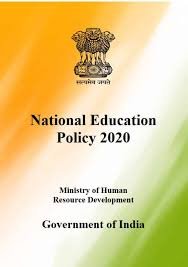Introduction
India’s National Education Policy (NEP), introduced by the Ministry of Human Resource Development, aims to revolutionize the education system by making it more holistic, flexible, and multidisciplinary. As the world undergoes rapid transformations in science, technology, and employment, the NEP is designed to equip students with the necessary skills to thrive in the 21st century. This policy focuses on foundational learning, equity, inclusivity, and innovation, ensuring that every student, regardless of background, has access to quality education.
Why India Needs a National Education Policy
With advancements in artificial intelligence, machine learning, big data, and automation, traditional job markets are changing. There is a growing demand for professionals skilled in mathematics, computer science, social sciences, and humanities. Furthermore, challenges like climate change, resource depletion, and public health crises highlight the need for new skills in agriculture, environmental science, and healthcare.
Education must go beyond rote learning and instead focus on critical thinking, creativity, and problem-solving. The NEP aims to bridge the gap between current learning outcomes and future job market demands by introducing reforms across all levels of education, from early childhood to higher studies.
Key Features of the National Education Policy
1. Early Childhood Care and Education (ECCE)
Studies show that 85% of brain development occurs before the age of six. The NEP emphasizes play-based, activity-based, and inquiry-based learning in the early years. This includes exposure to languages, numbers, art, music, and physical education, ensuring a strong foundation for lifelong learning.
2. Foundational Literacy and Numeracy
Basic skills in reading, writing, and arithmetic are essential for academic success. The policy aims to address teacher shortages, maintain a pupil-teacher ratio of 30:1, and provide access to high-quality digital learning resources through the DIKSHA platform.
3. Reducing Dropout Rates and Increasing Access
The policy seeks to ensure universal school education by:
- Building new schools and improving existing infrastructure.
- Providing transportation and hostel facilities, especially for girls.
- Tracking students’ progress to prevent dropouts.
- Expanding open and distance learning (ODL) programs for students unable to attend regular school.
4. Holistic and Multidisciplinary Learning
The NEP introduces a 5+3+3+4 education system:
- Foundational Stage (3–8 years): Play-based learning in Anganwadi and primary school.
- Preparatory Stage (8–11 years): Introduction of interactive classroom learning.
- Middle Stage (11–14 years): Subject teachers introduce experiential learning in sciences, arts, and social sciences.
- Secondary Stage (14–18 years): Students get flexibility in subject choices, including vocational training.
5. Flexible Curriculum and Assessment Reforms
- Education will be more engaging and enjoyable through sports-integration, arts-integration, and hands-on learning.
- Students can choose subjects based on their interests, breaking traditional rigid streams.
- The PARAKH assessment system will be introduced to ensure concept-based evaluation rather than rote memorization.
6. Focus on Teachers and Quality Education
- Teachers will be respected and empowered with better salaries, autonomy, and training.
- Teacher Eligibility Tests (TETs) will be strengthened across all education levels.
- Recruitment of local teachers will ensure better learning outcomes in rural areas.
7. Emphasis on Multilingualism
- Mother tongue or local language will be the medium of instruction until at least Grade 5, preferably Grade 8.
- Students will be exposed to multiple languages, enhancing cognitive abilities and cultural understanding.
Conclusion
India’s National Education Policy is a transformative step toward modernizing education and preparing students for the future. By promoting multidisciplinary learning, critical thinking, and inclusivity, the NEP aims to equip learners with the skills needed for the 21st-century workforce. This policy ensures that India’s education system is not just about acquiring knowledge but about learning how to learn.





